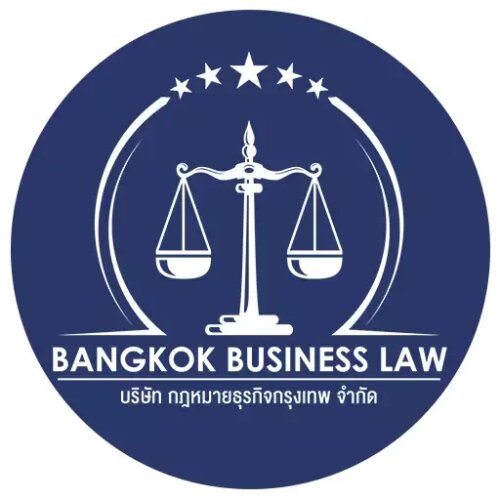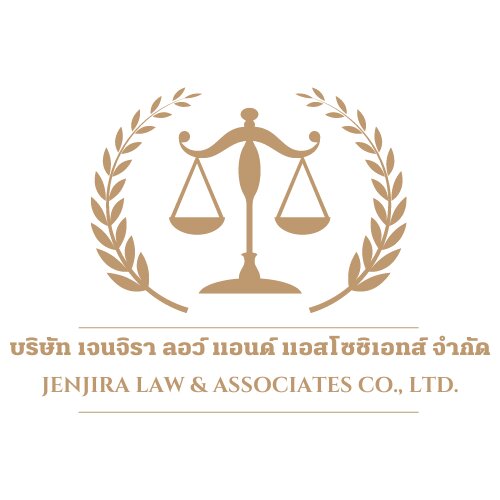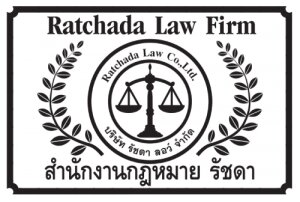Best ESG Advisory & Compliance Lawyers in Bang Kapi
Share your needs with us, get contacted by law firms.
Free. Takes 2 min.
List of the best lawyers in Bang Kapi, Thailand
About ESG Advisory & Compliance Law in Bang Kapi, Thailand
Environmental, Social, and Governance (ESG) advisory and compliance refer to helping businesses and organizations align their operations with global standards and local regulations that relate to environmental protection, social responsibility, and good corporate governance. In Bang Kapi, Thailand, ESG is gaining prominence as stakeholders, including investors, regulators, and consumers, increasingly demand ethical and sustainable business practices. Legal professionals work with companies to interpret and apply ESG standards in ways that are compliant with both Thai law and international benchmarks.
Why You May Need a Lawyer
There are several scenarios where you may need a lawyer specialized in ESG advisory and compliance in Bang Kapi. These include:
- Launching a business or project that could have environmental or social impacts
- Ensuring your company’s practices meet local and international ESG standards
- Responding to government or regulatory ESG audits and inquiries
- Dealing with environmental or workplace safety incidents
- Drafting ESG-related policies and training documents
- Risk management and due diligence before mergers and acquisitions
- Navigating non-compliance penalties and litigation
- Reporting ESG performance to stakeholders or authorities
- Staying updated with evolving ESG regulations in Thailand
- Participating in public-private partnerships or community development projects
Involving a lawyer ensures your activities are both legally sound and meet expected standards of ESG compliance.
Local Laws Overview
In Bang Kapi, as with the rest of Thailand, ESG regulation is shaped by a blend of national laws and voluntary guidelines. Here are key legal aspects to consider:
- Environmental Laws: The Enhancement and Conservation of National Environmental Quality Act and the Factory Act may regulate your operations, especially if your activities impact air, water, or soil quality. Environmental Impact Assessment (EIA) is sometimes required for certain projects.
- Social Responsibility: Labor Protection Act, Occupational Safety and Health laws, and Community Rights legislation govern workplace practices, employee welfare, and community impacts.
- Corporate Governance: Companies Act, Securities and Exchange laws, and the Stock Exchange of Thailand’s (SET) sustainability reporting requirements outline the expectations for transparent, ethical governance for companies, especially listed entities.
- Reporting Obligations: Publicly listed companies must now submit sustainability reports highlighting their ESG performance.
- Penalties and Enforcement: Non-compliance can result in fines, business suspension, or criminal liability for responsible parties.
Local implementation is carried out through Bangkok Metropolitan Authority policies, with support from national ministries.
Frequently Asked Questions
What does ESG compliance mean for my business?
ESG compliance means your business meets legal and ethical standards related to environmental stewardship, fair labor practices, community engagement, and responsible management. This can enhance reputation, reduce legal risks, and access new markets or investment.
Is ESG mandatory for small businesses in Bang Kapi?
Not all ESG requirements are mandatory for small businesses, but certain aspects, such as basic labor and environmental protection laws, apply to all enterprises. Voluntary ESG adoption can still provide competitive advantages.
Do I need an Environmental Impact Assessment?
You may need an Environmental Impact Assessment if your project or business falls into categories defined by the Ministry of Natural Resources and Environment as likely to have a major impact. Legal advice can clarify specific requirements.
How can my business avoid penalties for ESG non-compliance?
Regular legal review, internal compliance programs, ongoing staff training, and transparent reporting are critical. Consult a lawyer to develop procedures and audit readiness tailored to your operation.
What are the key ESG reporting obligations for companies?
Publicly listed companies must prepare and submit sustainability or ESG reports, covering their environmental, social, and governance practices, according to guidelines by the Securities and Exchange Commission and the Stock Exchange of Thailand.
How often do ESG laws in Thailand change?
ESG laws and guidelines are evolving rapidly in Thailand, especially as global standards shift. Regular updates occur, so ongoing monitoring and advisory support are recommended.
Can ESG compliance help with international business?
Yes, many international partners and investors require ESG compliance. Aligning with ESG standards can open access to foreign investment, contracts, and partnerships.
What are the consequences of failing an ESG audit?
Consequences can include fines, suspension of business operations, reputational damage, loss of partners or clients, and legal prosecution, depending on the severity of violations.
Who enforces ESG regulations in Bang Kapi?
ESG regulations in Bang Kapi are enforced by several bodies, including the Bangkok Metropolitan Authority, Ministry of Natural Resources and Environment, Ministry of Labour, and the Securities and Exchange Commission of Thailand.
How do I start building an ESG strategy?
Begin with a legal review of your business activities, identify relevant ESG laws, develop clear policies, implement training, set up monitoring and reporting systems, and engage a qualified ESG legal advisor for guidance.
Additional Resources
If you need more information or support on ESG advisory and compliance in Bang Kapi, consider reaching out to:
- Ministry of Natural Resources and Environment (MNRE) - Oversees environmental regulation and impact assessment
- Securities and Exchange Commission (SEC) Thailand - Sets guidelines for ESG reporting by listed companies
- Bangkok Metropolitan Authority - Local regulatory compliance and community engagement policies
- Ministry of Labour - Labor protection, workplace safety, and social responsibility matters
- Federation of Thai Industries - Industry-specific ESG best practices and advocacy
- Thai Chamber of Commerce - Support for corporate governance and business ethics
- Sustainable Development Office - ESG educational resources and guidelines
- Legal aid centers and professional law firms specializing in ESG advisory
Next Steps
If you believe your business or organization in Bang Kapi may need legal assistance with ESG advisory and compliance, here is how to proceed:
- Assess your current ESG policies and practices to identify gaps or risks
- Gather relevant documents, such as internal policies, regulatory filings, and incident reports
- Contact a qualified legal professional or law firm experienced in ESG laws in Thailand
- Schedule a consultation to discuss your specific needs, challenges, and objectives
- Work with your legal advisor to create or update compliance programs, reporting mechanisms, and employee training
- Monitor ongoing legal and regulatory developments to keep your compliance efforts up to date
Consulting a local legal expert ensures that your ESG strategies are solidly compliant with both local and international laws, helping your organization operate sustainably and successfully in Bang Kapi, Thailand.
Lawzana helps you find the best lawyers and law firms in Bang Kapi through a curated and pre-screened list of qualified legal professionals. Our platform offers rankings and detailed profiles of attorneys and law firms, allowing you to compare based on practice areas, including ESG Advisory & Compliance, experience, and client feedback.
Each profile includes a description of the firm's areas of practice, client reviews, team members and partners, year of establishment, spoken languages, office locations, contact information, social media presence, and any published articles or resources. Most firms on our platform speak English and are experienced in both local and international legal matters.
Get a quote from top-rated law firms in Bang Kapi, Thailand — quickly, securely, and without unnecessary hassle.
Disclaimer:
The information provided on this page is for general informational purposes only and does not constitute legal advice. While we strive to ensure the accuracy and relevance of the content, legal information may change over time, and interpretations of the law can vary. You should always consult with a qualified legal professional for advice specific to your situation.
We disclaim all liability for actions taken or not taken based on the content of this page. If you believe any information is incorrect or outdated, please contact us, and we will review and update it where appropriate.










